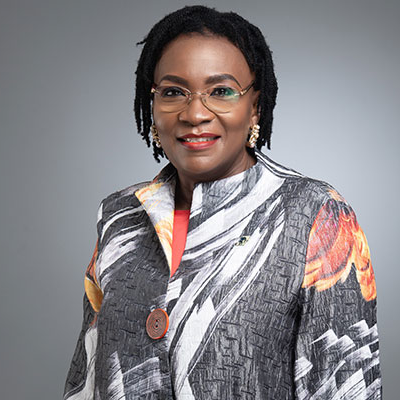Challenging the Gender-Gap for Greater Socio-Economic Equality

In 2020, almost half of the Nigerian population was female yet the Country Policy and Institutional Assessment (CPIA) rating for Gender Equality by the World Bank was 3.0 based on a scale of 1 to 6 (1 being the worst score and 6 being the best). The CPIA rating indicates the extent to which a country has institutions and programs that can enforce policies that promote equal access for all to education, health and protection under law. Compared to some of its African counterparts such as Ghana, Zimbabwe and Madagascar which all received a rating of 4, it is evident that the Nigerian woman still has a battle ahead in challenging societal norms to increase opportunities for all women across the nation.The Issues
Reasons for the gender gap in Nigeria include traditional patriarchal beliefs, poor access to education and a lack of supportive legislature. As a result women face considerable barriers to achieving equal status to men in terms of property ownership, gainful employment, political power, financial services and credit, and health. Some of these factors are worth exploring in more detail.
Across Nigeria, the adult female literacy rate varies drastically from a high of 80.6% in the South-West to a low of just 29% in the North-West. A study by economist Charles Robertson shows that there is a direct and positive correlation between higher literacy rates and greater economic performance. This highlights the importance of improving access to education particularly in the Northern parts of the country to drive towards greater economic development.
Also, Nigerian law has gaps that make it difficult for women to fully participate in the labour force. For example, the law does not prohibit discrimination in employment based on gender, nor promote equal remuneration for work of equal value. In some industries women are not permitted to participate at all, or can only perform limited tasks compared to their male counterparts. As a result, women are mainly involved in petty trading and street hawking in urban areas and it is estimated that 78 percent of women are mostly engaged in the informal sector. Despite this, their contribution is not commensurate monetarily. The women’s unpaid labor force is twice that of men, and its economic value is estimated to be up to 30 percent of the nation’s Gross National Product. In addition, only 1.9 percent of Nigerian women were provided with employer-based health insurance as of 2018 which is vital insurance cover for women considering factors such as maternal mortality, pregnancy, and the inability to afford proper health care.
There is also the issue of access to finance with only 27 percent of women having bank accounts compared with 51 percent of men demonstrating that Nigerian women face significant constraints in accessing financial services to meet their needs. In addition, women-owned micro and small businesses face a finance gap of approximately $22 billion in Nigeria.
These gender inequality issues at the socio-economic level are reflective of the underrepresentation of women in politics and the corporate world in Nigeria.
We need more women at the top
In spite of the recent electoral success of female candidates in local, state, and national elections, we find that voters’ gender stereotypes have potentially negative implications for women candidates, especially when running for national office.
The national average of women’s political participation in Nigeria has remained 6.7 percent in elective and appointive positions, which is far below the Global Average of 22.5 percent. For instance, of President Muhammadu Buhari’s 44 ministers, only seven are women, representing 15.9 percent. Also, with the twenty-one years of uninterrupted democratic governance (1999-2021), Nigeria has produced only one female governor in all of the 36 states of the Federation- Mrs. Virginia Ngozi Etiaba, CON, who only served for 3 months (from November 2006 to February 2007).
At the corporate level, women’s under-representation on Boards is a continental issue even though empirical evidence suggests that women make better directors than men because they are consistently fair in making decisions when competing interests are at stake (Bart & McQueen, 2013). Historically, senior management and leadership positions in Africa have always carried the notion of masculinity and the belief that men make better managers and leaders than women (Kiamba, 2006).
Spotlighting the Nigerian banking industry, A 2014 report by WIMBIZ showed women representation on Boards stood at just 19 percent. The Central Bank of Nigeria’s (CBN) policy directive that mandates a minimum of 30 percent female representation on boards of Nigerian commercial banks and the Securities and Exchange Commission (SEC) Code of Corporate Governance which recommends that publicly listed companies consider gender when selecting board members have helped reinforce the incorporation of female representation in leadership. However, a lot more must be done to see this notion in full force.
Effects of closing the Gender-Gap
As the late former UN Secretary-General Kofi Annan said, ‘Gender equality is critical to the development and peace of every nation’. This has earned it a place on the list of UN Sustainable Development Goals. According to a 2018 report by the IMF, closing the gender gap in Nigeria could lead to additional economic growth of 1.25 percentage points. Putting that into context the nation’s 0.11 percent!
Studies also indicate that every additional year of primary school potentially increases women’s eventual wages by 10 to 20 percent. It also encourages them to marry later and have fewer children and leaves them less vulnerable to violence. This research also supports that when more income is put into the hands of women, child nutrition, health and education improve.
According to the CFR Women and Foreign Policy Program’s new digital report, Growing Economies Through Gender Parity, Nigeria’s Gross Domestic Product (GDP) could grow by 23 percent—or $229 billion—by 2025 if women participated in the economy to the same extent as men. And the International Monetary Fund (IMF) has found that strengthening gender equality in Nigeria could be an economic game-changer, leading to higher productivity and greater economic stability.
Also, gender diversity in private sector leadership is cost-effective. Companies listed in the stock market who have one or more women on their boards present a 44 percent higher return on equity (ROE) and have a 47 percent higher Profit margin than those that do not have women in these positions.
Women on the rise
Regardless of the barriers inhibiting women’s progress, there is hope as Nigerian women continue to advance on the world and local stage. Trailblazers such as Mrs. Ngozi Okono-Iweala, the first African female Director-General of the World Trade Organization, Mrs. Ibukun Awosika, the first woman to be appointed Chairman of First Bank of Nigeria Limited, and Mrs. Chinyere Kalu, the first woman to fly an aircraft in Nigeria, have set the pace for other women to follow in achieving greatness.
While the onus of change lies majorly in the hands of those in power to enforce existing laws against gender-based discrimination and sexual harassment; implement more policies that accommodate the empowerment of women, and put into action other policies that help eradicate gender bias, the bulk of the work rests on the shoulders of every female and male who believe in social, political and economic equality of the sexes.
The International Women’s Day 2021 campaign strongly states;
‘A challenged world is an alert world. Individually, we’re all responsible for our own thoughts and actions – all day, every day. We can all choose to challenge and call out gender bias and inequality. We can all choose to seek out and celebrate women’s achievements. Collectively, we can all help create an inclusive world. From challenge comes change, so let’s all choose to challenge.’
As a nation we have a choice to imbibe the #ChoosetoChallenge campaign by promoting female education; confronting gender stereotypes; increasing public consciousness of the importance of women to the society instilling structures to ensure there are consequences for gender discrimination such as unequal employment opportunities, pay gaps, sexual harassment etc. and empowering the youth with access to mentoring that can shape and guide their mindsets for a more inclusive and progressive Nigeria.
Gender equality is a human right and must start from childhood. It is important for all to know this and challenge anything that poses as opposite.
Otunba ‘Debola Osibogun (Mrs)
President
Consumer Awareness and Financial Enlightenment Initiative (CAFEi)

